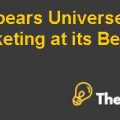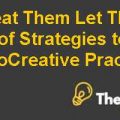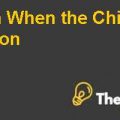To: Lance Armstrong
Subject: Performance-Enhancing drugs
Date: 26/06/2015
The purpose of this memorandum is to evaluate the usage of performance enhancing drugs by Lance Armstrong with respect to ethical theories.
The core ethical values are trustworthiness, respect, responsibility, fairness, caring and citizenship. The bike company has strong arguments against Lance Armstrong in these values. Armstrong was not a person who can be trusted because he lied to his sponsors, fans and the racing community. His entire career and his entire accomplishments are lies. His fans believed that he was able to win on his own.
As an athlete, it was his responsibility to respect the game he was involved in. However, he defamed him and the organization as it was not able to determine that he was using performance drugs. He also did not care about his team whose members did not win any game as he was using drugs. Even though his team mates were also not honest as they continued with him however, they knew that he used performance-enhancing drugs (Universal or Core Ethical Values).
Relativism is a set of sentiments about the relationship between morality and a culture or social club. Descriptive relativism says that as a matter of fact, moral codes differ from one country to another. Slavery may be permissible under certain conditions; however, it may never be permissible in any other country. The perception of Lance Armstrong is different relatively to the opinion of bike sponsors (Bernstein, 2011).
The bike sponsors may argue that the usage of drugs is illegal in the cycling competition and only benefits those who use. It harms other cyclists who lose the competition due to their honesty and does not compete on the same level. While Armstrong may argue that he is the cancer survivor and has employed most of the money in his charitable foundation Live strong, however, he would not able to have such a foundation if he had not won the races by using the drugs. The foundation has raised almost $500 million and has helped more than 2.5 million people dealing with cancer.
Ethical egoism is one where the morally right action is the one that promotes the agents own interest. Lance Armstrong wants to win the race at any cost as he wants to fight cancer at any cost. Therefore, as every-one has the right to achieve his aims and objectives, his actions should be considered ethical (Becker, (1976)).
He got attention from media. Fame and respect was all around him and he was unable to resist using performance-enhancing drugs because he knew he would not win races without them. As everyone likes this, anyone in his place would have done that. On the other hand, the Bike Company can argue that he was selfish when he thinks only about himself and he does not deserve all these titles as these were not achieved with true efforts.
UTILITARIANISM is the ethical theory that the production of happiness and reduction of unhappiness should be the measure by which actions are judged right or wrong. By agreeing to this theory, an action is not proper or wrong but because it is a case of telling the truth or lying; and the moral rule against lying is not in it correct. Lying is wrong because, in general, it has bad results. Nevertheless, if lying creates happiness or reduces unhappiness, then it is ethical to lie (SCHWEICKART, 1978).
According to this theory, Lance Armstrong can argue that his bike suppliers made $100 million to $1 billion in sales. Moreover, it brought happiness to the people of the United States of America, people who are suffering from cancer, the government in form of taxes and his family. As far as its usage does not harm anybody, the usage of performance enhancing drugs should be considered ethical. He also made everyone happy by wearing US Postal's logo and colors which enhanced the brand in a good way.
On the contrary, the bike company would argue that showed utilitarianism but he only maximized happiness for himself not others. He enjoyed winning races and getting metals but did not care about the effect that it would have on his team and sponsors. He admitted in an interview that he does not believe that he would have won all seven of the Tour de France races if he had not been doping drugs..............
This is just a sample partial case solution. Please place the order on the website to order your own originally done case solution.












